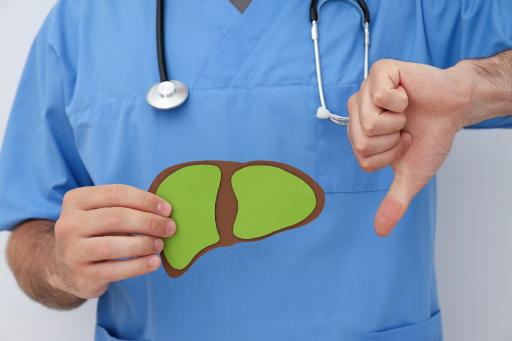Stress is an inevitable part of life. The body’s reaction to any change requires an adjustment or response. While stress can be a motivator, it can also harm our health if not managed properly. In this blog, we’ll explore how stress affects our bodies and provide strategies to cope effectively.
Can Stress Cause Constipation?
Understanding the Stress-Constipation Connection
When we experience stress, our body’s natural response is to enter a ‘fight or flight’ mode, which the autonomic nervous system regulates. This system is divided into the sympathetic nervous system, which prepares the body for quick action in stressful situations, and the parasympathetic nervous system, which calms the body down and aids digestion.

The Role of the Enteric Nervous System
The enteric nervous system, often called the “second brain,” is a network of neurons in the gastrointestinal tract that communicates with the brain using neurotransmitters like serotonin. Serotonin is crucial for digestion, as it helps contract smooth muscles in the colon, facilitating food movement.
How Stress Affects Digestion
During periods of stress, the body releases hormones such as cortisol and adrenaline, along with an increase in serotonin levels. This can cause spasms in the stomach and intestines. If these spasms occur throughout the colon, it may result in diarrhea. However, if isolated to one area, they can halt food movement, leading to constipation.
The Stress Factor
Under stress, the digestive process can significantly slow down, and if the stress is severe or prolonged, symptoms like stomach pain and constipation can become chronic. Stress can also cause inflammation in the gastrointestinal tract, exacerbating constipation and worsening any pre-existing inflammatory conditions.
Stress-Related Behaviors
Stress often leads to poor dietary choices, reduced physical activity, and inadequate hydration, all of which can contribute to constipation. Additionally, stress can affect the healthy bacteria in the gut, potentially slowing digestion further.
Managing Stress to Alleviate Constipation
To combat stress-related constipation, consider the following tips:
- Mindfulness and Relaxation Techniques: Practices like meditation can help reduce stress and its physical effects.
- Regular Physical Activity: Exercise can improve digestion and reduce stress.
- Healthy Eating Habits: A fiber-rich diet can help maintain regular bowel movements.
- Stay Hydrated: Drinking plenty of water is essential for digestion.
- Seek Professional Help: If stress and constipation are persistent, consulting a healthcare provider is advisable.
By understanding the link between stress and constipation, we can take proactive steps to manage stress and maintain a healthy digestive system. Remember, caring for your mental health is as important as looking after your physical health.
Can Stress Cause a Miscarriage?
The Debate on Stress and Miscarriage Risk
Conflicting Views
Medical opinions on the impact of stress on miscarriage risk are divided. Some sources, including the United Kingdom’s National Health Service (NHS) and the American College of Obstetricians and Gynecologists (ACOG), assert that stress does not directly cause miscarriages. They emphasize that miscarriages are often the result of chromosomal abnormalities or other health issues, not stress.

Research Findings
However, some studies suggest that psychological stress, such as occupational stress or stressful life events, may increase the risk of miscarriage. A systematic review and meta-analysis found that women with a history of exposure to psychological stress had a higher risk of miscarriage compared to those without such stress. The researchers proposed that hormonal changes, particularly increased cortisol levels, might affect the placenta and other hormones, influencing pregnancy outcomes.
The Role of Cortisol
Cortisol, the “stress hormone,” can affect the body, including the immune system and inflammatory responses. During pregnancy, elevated cortisol levels might affect the placenta’s functioning and potentially lead to complications that could increase the risk of miscarriage.
Psychological Stress and Pregnancy Complications
While stress may not be a direct cause, it can lead to other complications during pregnancy that affect the health of the pregnant person and the fetus. High levels of sustained stress may contribute to high blood pressure, which is associated with increased risks of preeclampsia, eclampsia, and placental abruption. These conditions can lead to preterm delivery and low birth weight for the baby.
Managing Stress During Pregnancy
Given the potential risks associated with high-stress levels during pregnancy, it’s important for expectant mothers to find effective ways to manage stress:
- Mindfulness and Relaxation: Techniques such as meditation and deep-breathing exercises can help reduce stress.
- Support Networks: Emotional support from friends, family, and healthcare providers can be beneficial.
- Healthy Lifestyle: Maintaining a balanced diet and regular exercise can improve overall well-being.
- Professional Guidance: Consulting with healthcare professionals about stress management can provide tailored strategies for reducing stress during pregnancy.
Can Stress Cause a Stroke?
The Connection Between Stress and Stroke Risk
Research Insights
Research indicates that both short-term and long-term emotional stress can increase the risk of a stroke. A large study involving over 26,000 participants found that self-reported psychosocial stress within the previous 12 months was associated with an increased risk of both ischemic and hemorrhagic strokes. This association was observed regardless of the participants’ socioeconomic status, occupation, or educational level, suggesting that the link between stress and stroke is a widespread concern.

How Does Stress Contribute to Stroke?
Stress can lead to physiological changes in the body that may contribute to the development of a stroke. These include:
- Blood Pressure: Stress can cause temporary spikes in blood pressure, and over time, chronic stress can lead to sustained high blood pressure, a major risk factor for stroke.
- Inflammation: Stress can trigger inflammation in the body, which is another risk factor for stroke.
- Blood Clotting: Stress may affect the blood’s clotting ability, increasing the risk of clots that can lead to stroke.
- Lifestyle Factors: Stress often leads to unhealthy behaviors such as poor diet, smoking, and lack of exercise, which are known risk factors for stroke.
Stress Management and Stroke Prevention
Given the potential impact of stress on stroke risk, managing stress effectively is an important aspect of stroke prevention. Here are some strategies that may help reduce stress and, consequently, the risk of stroke:
- Mindfulness and Meditation: These practices can help calm the mind and reduce the physiological effects of stress.
- Regular Exercise: Physical activity is a great stress reliever and helps maintain healthy blood pressure and weight.
- Healthy Diet: Eating a balanced diet rich in fruits, vegetables, and whole grains can support cardiovascular health.
- Adequate Sleep: Sleeping is essential for stress management and overall health.
- Social Support: Having a solid support network can help alleviate stress.
Professional Help
If you find that stress is becoming overwhelming, or if you have concerns about your risk of stroke, it’s important to seek professional medical advice. Healthcare providers can offer guidance on stress management techniques and may recommend other interventions to reduce your risk of stroke.
While stress is a natural part of life, its management plays a crucial role in maintaining cardiovascular health and reducing the risk of stroke. By adopting healthy lifestyle habits and stress-reduction techniques, you can help protect yourself against the potential adverse effects of stress on your body.
Can Stress Cause Elevated Liver Enzymes?
The Influence of Stress on Liver Health
Physiological Response to Stress
When the body is under stress, it responds by activating the sympathetic nervous system and releasing stress hormones like cortisol and adrenaline. This response is designed to help the body cope with immediate threats but can have adverse effects when sustained over time.

Stress and Liver Enzymes
The liver enzymes most commonly measured to assess liver health are Aspartate transaminase (AST), Alanine transaminase (ALT), Alkaline phosphatase (ALP), and Gamma-glutamyl transferase (GGT). Elevated levels of these enzymes can indicate liver cell damage or inflammation.
Mechanisms of Stress-Induced Liver Injury
Several mechanisms have been proposed for stress-induced liver injury:
- Hypoxia-reoxygenation: Stress can disrupt the balance of oxygen supply and demand in liver tissues, leading to injury.
- Over-activation of Kupffer cells and oxidative stress: Stress can lead to an overactive immune response in the liver, causing damage through oxidative stress.
- Influx of gut-derived lipopolysaccharide and norepinephrine: Stress can increase the gut’s permeability, allowing harmful substances to enter the liver and cause inflammation.
- Over-production of stress hormones: Chronic stress can lead to an overproduction of stress hormones, negatively affecting liver function.
Clinical Observations
Clinically, cases with elevated liver enzymes without any known causes are often observed. Stress response could be a possible reason, which has been overlooked so far. Psychological stress is associated with a variety of pathological conditions resulting in liver injury through multiple systems, including the sympathetic nervous and adrenocortical systems.
Managing Stress to Protect Liver Health
To mitigate the impact of stress on liver health, consider the following strategies:
- Relaxation Techniques: Practices like yoga and meditation can help reduce the physiological impact of stress.
- Regular Exercise: Physical activity can help regulate stress hormone levels and improve liver health.
- Healthy Diet: A diet low in processed foods and high in antioxidants can support liver function.
- Adequate Sleep: Quality sleep is essential for the regeneration of liver cells and overall health.
- Professional Support: If stress is causing significant health issues, seeking the help of a healthcare professional is advisable.
While stress is a part of life, its management is crucial for maintaining liver health and preventing the elevation of liver enzymes. Adopting a healthy lifestyle and stress-reduction techniques can help protect your liver from the negative effects of stress.
Can Stress Cause UTI?
Stress doesn’t directly cause urinary tract infections (UTIs), but it may weaken the immune system, making the body more susceptible to infections.
What Can Stress Do to a Woman’s Body?
Physical Effects of Stress on a Woman’s Body
Hormonal Imbalance
Stress can disrupt the delicate balance of hormones in a woman’s body, particularly those related to the reproductive system, such as estrogen and progesterone. This imbalance can lead to irregular menstrual cycles, changes in flow, and even missed periods.

Fertility Issues
Chronic stress may interfere with a woman’s ability to conceive by affecting the hormones that regulate ovulation. It can also impact libido, further complicating reproductive efforts.
Pregnancy Complications
For pregnant women, high levels of stress can increase the risk of premature birth and low birth weight. It may also affect the development of the fetus and the mother’s postpartum adjustment.
Weight Gain
Stress triggers the release of cortisol, which can increase appetite and cravings for unhealthy foods, leading to weight gain, particularly around the abdomen.
Skin Conditions
Stress can exacerbate skin problems such as acne, psoriasis, and eczema due to the inflammatory response it triggers in the body.
Emotional and Behavioral Effects
Mental Health
Chronic stress can lead to anxiety, depression, and mood swings. It can also affect cognitive functions, leading to memory problems and difficulty concentrating.
Sleep Disturbances
Stress often causes difficulties with falling asleep or staying asleep, leading to insomnia and other sleep disorders.
Behavioral Changes
Under stress, some women may engage in unhealthy behaviors such as overeating, undereating, alcohol or drug misuse, and social withdrawal.
Coping with Stress
To mitigate the impact of stress on a woman’s body, consider the following strategies:
- Mindfulness and Meditation: These practices can help reduce stress and its physical effects.
- Regular Exercise: Physical activity is a great stress reliever and can improve overall health.
- Balanced Diet: Eating a healthy diet can help your body better cope with stress.
- Adequate Sleep: Ensure you get enough sleep, as lack of rest can exacerbate stress.
- Social Support: Connect with friends and family for emotional support.
Women must recognize the signs of stress and take proactive steps to manage it. If stress overwhelms, seeking professional help can provide additional support and resources to cope effectively.
In summary, stress can have a significant impact on a woman’s body, but with the right strategies and support, its effects can be managed and mitigated. Remember, taking care of your mental health is as important as looking after your physical health.
Can Stress Cause Back Pain?
How Stress Leads to Back Pain
Muscle Tension
One of the primary ways stress can cause back pain is through muscle tension. When stressed, the body’s natural response is to tense up as part of the ‘fight or flight’ reaction. This tension, especially when chronic, can lead to stiffness and pain in the back muscles.

Posture Changes
Stress can also affect posture. People who are stressed often hunch their shoulders and change their breathing patterns, which can lead to strain and tension in the middle and upper back.
Inflammation
Chronic stress can trigger inflammation throughout the body, including the back. Inflammation can irritate nerves and cause pain.
Blood Flow
During stressful times, blood vessels may constrict, reducing blood flow to back muscles and causing pain.
Pain Sensitivity
Stress can make the body more sensitive to pain. Critical life events can trigger changes in the limbic system and related neurotransmitters, which can alter pain-inhibitory mechanisms, making one more susceptible to pain.
Identifying Stress-Related Back Pain
Stress-induced back pain can vary from person to person. It may manifest as a dull or sharp ache, stiffness, or muscle spasms, and it may radiate to the legs or buttocks. Upper back pain might feel like a burning or stabbing sensation or a feeling of tightness or pressure between the shoulder blades.
Managing Stress to Alleviate Back Pain
To reduce stress-related back pain, consider the following strategies:
- Mindfulness and Meditation: These practices can help calm the mind and reduce the physiological effects of stress.
- Regular Exercise: Physical activity can help relieve muscle tension and improve overall back health.
- Proper Posture: Being mindful of posture, especially when sitting for long periods, can prevent additional strain on the back.
- Adequate Sleep: Quality sleep is essential for muscle recovery and stress management.
- Professional Help: If back pain persists, consulting with a healthcare provider or a physical therapist is advisable.
Stress can indeed cause back pain, and managing stress is key to alleviating and preventing it. By incorporating stress-reduction techniques and maintaining a healthy lifestyle, you can help keep your back healthy and pain-free.
Can Stress Cause Hemorrhoids?
Stress doesn’t directly cause hemorrhoids, but it can lead to behaviors like poor diet and irregular bowel habits, which may contribute to the development of hemorrhoids.
Can Stress Cause Kidney Stones?
There is no direct link between stress and kidney stones, but stress can lead to unhealthy lifestyle choices that may increase the risk of stone formation.
Conclusion
Stress is a complex and multifaceted issue that can have a wide-ranging impact on our health. From constipation to miscarriage, stroke to elevated liver enzymes, and from urinary tract infections to back pain, the effects of stress can manifest in various physical conditions. Women, in particular, may experience unique stress-related health issues, such as hormonal imbalances, fertility problems, and pregnancy complications.
The common thread across these conditions is the body’s response to stress, which can lead to physiological changes that affect our health in numerous ways. Whether it’s through hormonal fluctuations, increased inflammation, or heightened pain sensitivity, stress can disrupt the normal functioning of our bodies and contribute to the development of health issues.
However, it’s important to remember that stress is a natural part of life, and not all stress is harmful. It’s the chronic, unmanaged stress that poses the greatest risk to our health. By employing effective stress management techniques—such as mindfulness, regular exercise, a balanced diet, adequate sleep, and social support—we can mitigate the negative effects of stress and maintain better overall health.
If you find yourself struggling with stress and its physical manifestations, don’t hesitate to seek professional help. Healthcare providers can offer personalized advice and treatment options to help you manage stress and prevent its potential health impacts. Remember, taking care of your mental health is just as crucial as taking care of your physical health, and managing stress is an essential part of that process.







